

Adobe Commerce Reviews & Product Details
Adobe Commerce (formerly Magento) is a hosted and open-source product and is one of the biggest website builders today, with major blue-chip brands like Nike and Cisco among its roster of clients. The Adobe Commerce environment is also scalable, however, it does require some coding knowledge to maximize. The platform has a lot of customization options and offers trigger-based automated marketing features and automatic cross-selling and upselling features.

| Capabilities |
|
|---|---|
| Segment |
|
| Deployment | Cloud / SaaS / Web-Based, On-Premise Linux, On-Premise Windows |
| Support | 24/7 (Live rep), Chat, Email/Help Desk, FAQs/Forum, Knowledge Base, Phone Support |
| Training | Documentation |
| Languages | English |
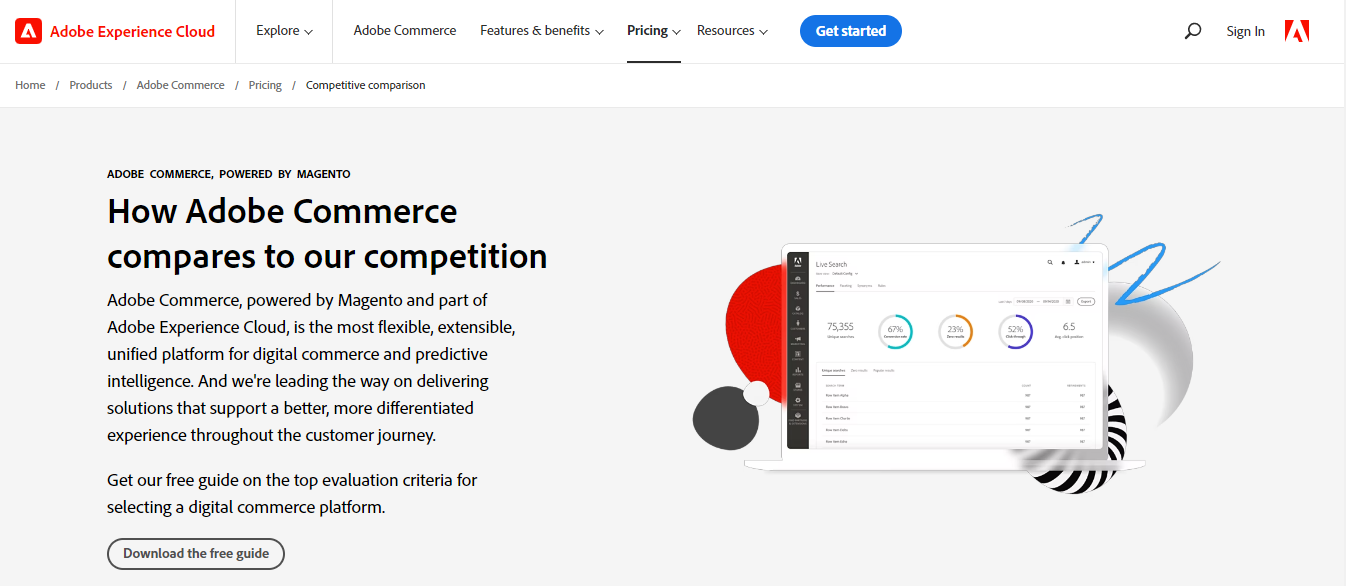
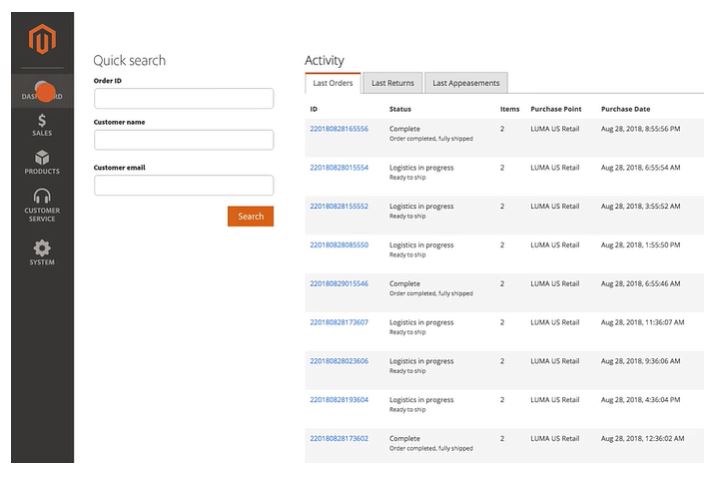
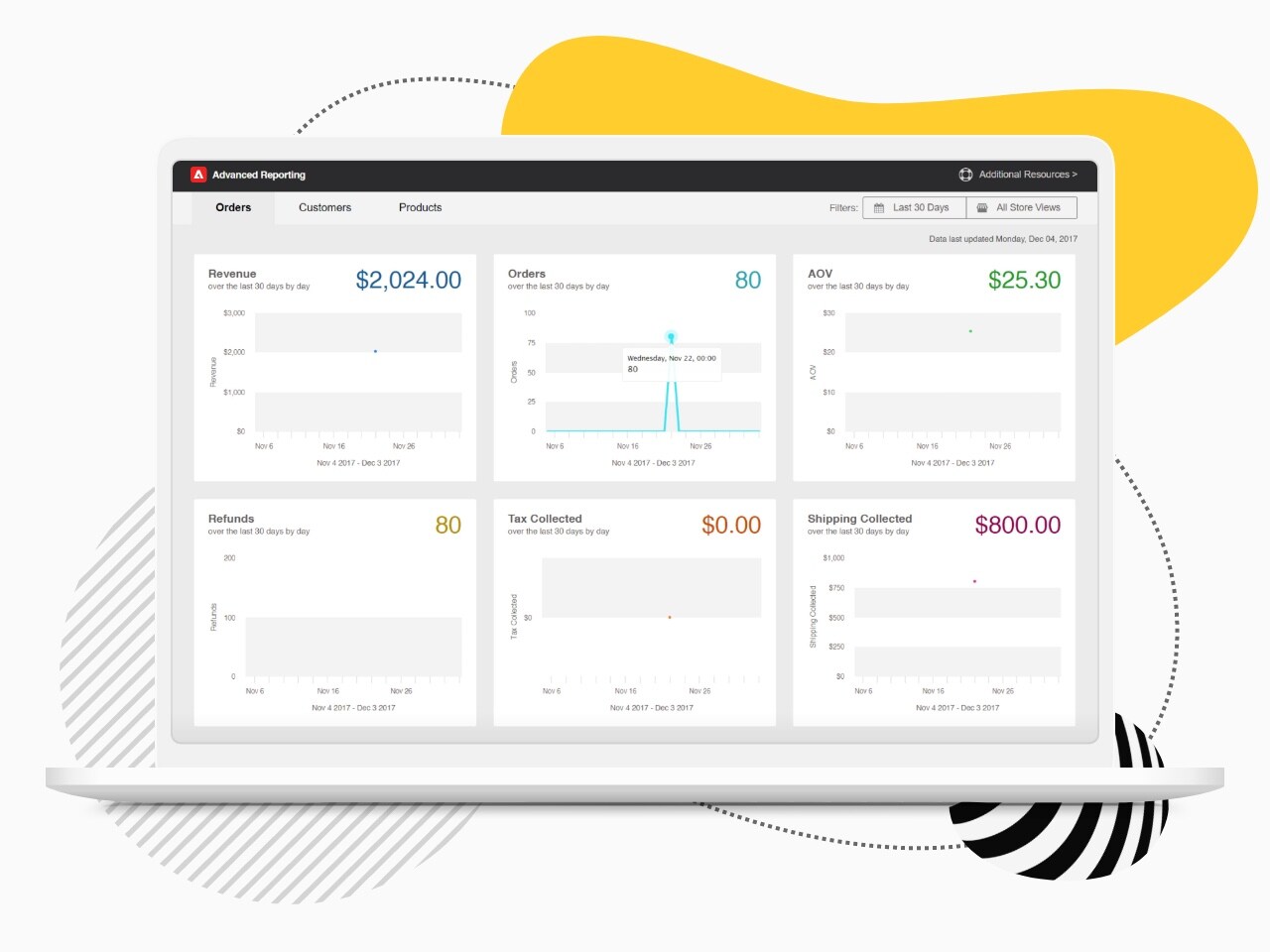
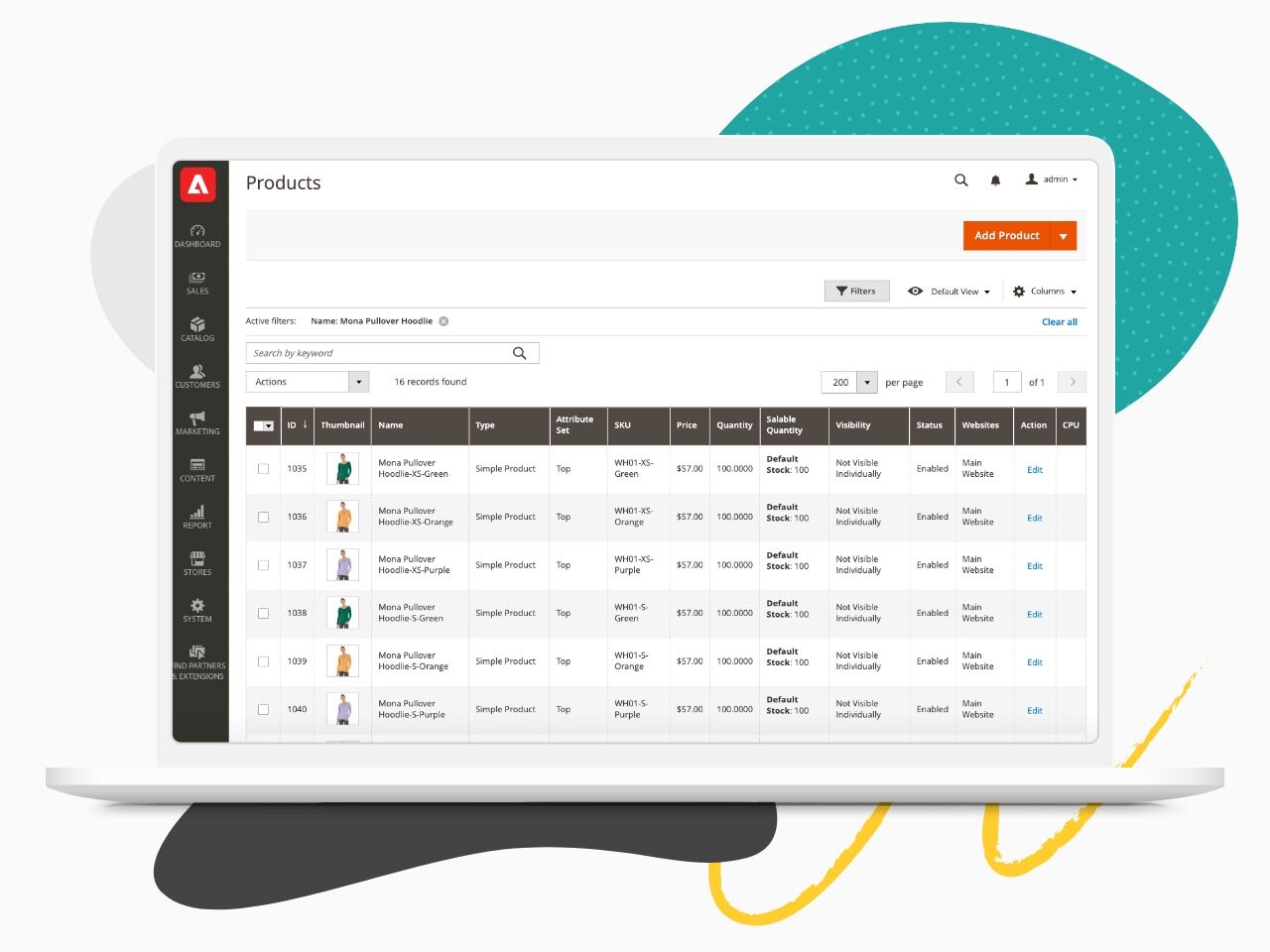
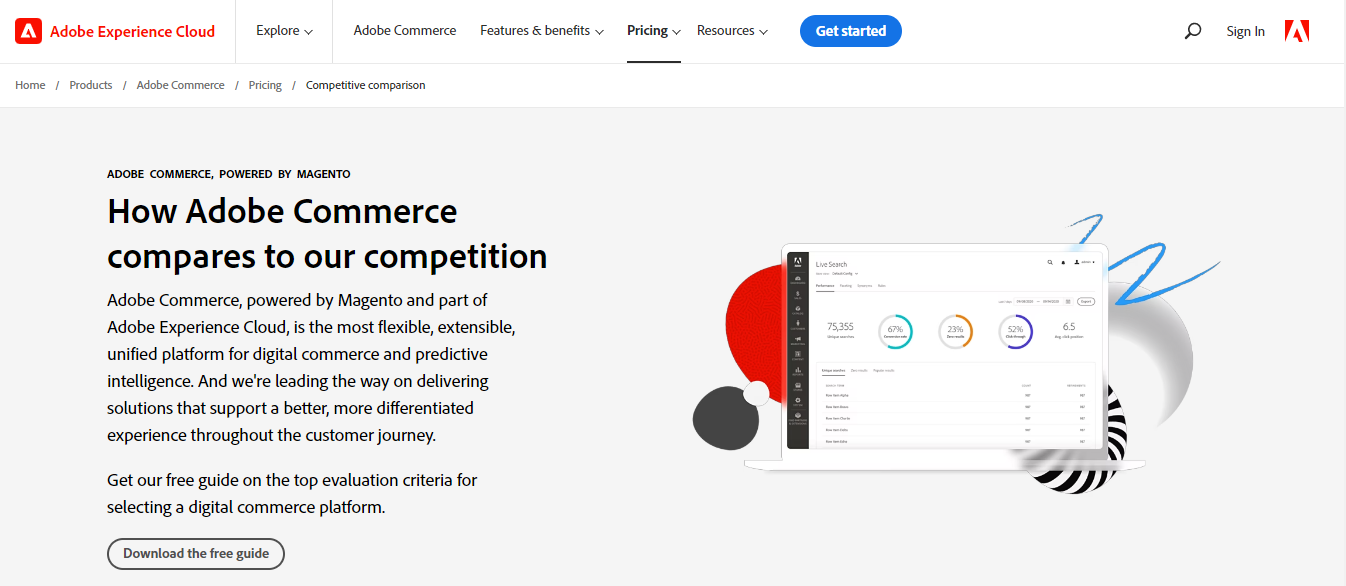

Managing of the entire sales process including warehouse management
Sometimes the performance is very low because everything is browser based and there are many processes in the backend, for example when you make a change to an article
Managing our shops in different countries
Magento 2 hasn't been around all that long yet, and each successive release is fixing more issues and introducing more functionality, so definitely feel like it's the best long-term platform for a growing e-commerce business. Especially love the multi-store functionality.
Support team is adequate but not great, although client relations are solid. Biggest dislike is that the ecosystem they have created is very advantageous to 3rd party integrators, resulting in Magento not willing to handle questions and concerns that may involve 3rd parties applications or even how to execute on some of their functionality. They love to refer those questions to system integrators (at your expense).
Scaling a complex e-commerce business with multiple storefronts and brands.
Extensibility of the core modules, and loads of factory-default settings and features that handle the majority of basic grunt work -- e.g. catalog pagers, checkout, user security, etc. Also, support is very good and the community is very strong.
The naming conventions can be extremely confusing at times, due in part to its contextual nature which often leads to confusion when referencing message boards or documentation.
Robust back-end that supports high-volume ecommerce, and a flexible front-end that enables us to reinforce a unique brand identity and effective user experience. There are also lots of bells and whistles that come in handy.
The fact that most errors or scenarios you will encounter have been encountered before, and can usually be solved by work arounds or extensions.
Some long term bugs and slow api call processing
Api based stock and sales sync
Easy design to navigate, rebuild, reliable, minimal crashes,
Not integrated ERP, quality of reports is lacking
Need Erp
It has some great features and lets you get started pretty quickly
Customer support is somewhat lacking. Hope it improves.
Creating a small web application.
The availability of a large community of developers
Not easy to scale up when the business grows
Support ecommerce with a multi-country and multi-language coverage
Very powerful, tons of add ons, many of them free. Community support is very helpful.
It is a bit of a resource hog. You do need a decent server to run this well and caching is a necessity.
Started an online store with thousands of drop ship products with very little to invest. I am a bit of a hack as far as developments but was enough to build the store running smoothly. Business didn't last, but the cart was awesome.
It makes it much simpler from any branch in my company, store, e-commerce or warehouse, to locate exactly where and how much merchandise we have. This helps us keep efficiency compared to before when we did so manually, as we are still a young company operating in the US.
The fact that our task was very difficult for the developer who made our system for us. The delivery was delayed by 13 months, after paying half of the fee upfront.
As I stated before, it helped us bee more efficient on a company level.
Magento is user friendly- for both developers and designers who don't know how to code. Magento has vast capabilities for website customization.
Saving feature is slow and changes need a lot of cache clearing.
Website design and development.
I like Magento because its simple to use yet there are so many different options and extensions. This allows the user to customize it and make it more complex to meet their individual company's needs.
I dislike that there are always notifications for irrelevant things when I log in.
Inventory tracking has been a lifesaver. I like how you can track individual warehouses for product tracking and inventory.
Ease of using this platform and understanding the code used within it
The extensions that need to be added to do basic reports.
It has built it in features, i.e. ability to review products within it, that allow you to work with one less partner and pay for another program
Ease of implementation, customization, and managing for new users
1.9 is very ugly, and 2.x is a bit buggy. I really, really hate LESS and how complicated it is to make simple CSS changes now
Managing an online catalog, CMS pages, and other content
the add ons that are available are helpful and work for me
It takes some getting used to, it took some time to learn
website and sales
Pretty Straight forward e-commerce platform that can be tied well into salesforce
The sync to salesforce and netsuite can sometimes take a while and be tedious.
It is being used to handle E-commerce, such as booking orders and quotes
The easy of use of this platform is the best part about it. Beginners can log on and quickly get a feel for how to navigate.
The layout of this Magento could be better.
Inventory management and Magento all in one.
I really enjoyed the UI and the ease of product changes that could be made on the fly inside of the UI.
I would like to be able to pull certain product sets from Magento to edit them and then re-upload them. Although I would like to be able to choose which pieces of information to download so that the spreadsheet is smaller and easier to manage
We are using magento as an eCommerce platform to pick up small sales that would otherwise be lost to larger companies. We have realized that having an eCommerce store is a cost effective way to drive sales.
I love that the UI layout is easy enough to navigate, every all sub menus all laid out. With the latest update for text editor/media editor, it's easy to drag and drop media and have your website layout easily designed.
it is buggy and Magento Cloud support could be more helpful in solving those - with that being said, I didn't actually have a direct convo with Magneto support.
Product setup, banners/graphic setup - they are easy for regular people to use, not hard coded.
Magento 1x is fairly robust in the amount of control you have over everything as well as the amount of plugins available
It is fairly outdated in design and usability. Its 2020 and its the same layout they had when I first started working in Magento in 2010. I also don't like their marketing email feature. We went 3rd party for this.
We are currently using Magento 1 for multiple websites, ecommerce, and customer information.
Magento is meant for eCommerce businesses. It allows you to set up a relatively easy user experience: a customer can view product and go through the process of purchasing the product. If your product is more complex and requires customization, I would recommend another website platform. It can be done, and you will be required to turn off cart and purchasing features.
Unfortunately, we don't do eCommerce, but we do have products listed as such. This site provided us with an easy way to showcase all of our different products and the features, specs, sales sheets, and videos associated with each.
Magento has allowed us to organize a large amount of product so that it is clear and convenient to our customers. We sell many different types of solutions, and in order for the customer to navigate all of these solutions, we chose to implement eCommerce.









